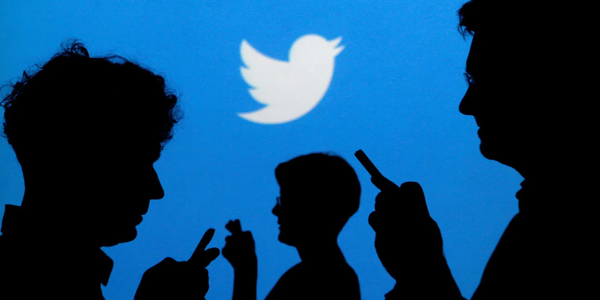Twitter is the social media equivalent of a gas station’s bathroom wall: it might keep you entertained for a bit — heck you can even partake in the “shitposting” too — but if you stay there long enough, it sure is going to stink. It’s a place filled with people who would happily feud with a complete stranger and it’s extremely common to see know-it-alls give condescending pseudo-lectures to each other. Needless to say, I’m not such a huge fan of the bird app.

I used to be a heavy Twitter user in my early college years. I can say it was my go-to social media platform for basically everything. What first drew me into the app was, of course, memes. I could see the same memes I got on my other socials, but a few days earlier and with a funnier comment section. My Twitter usage peaked during the early stages of the pandemic and as I recall, it was when the #BLM movement was reignited after the murder of George Floyd. What started as a casual scrolling session before bed turned into a weird addiction, where at some point, I was convinced that I had developed some form of an attention deficiency problem. I even started noticing that I was using Twitter lingo in my daily vocabulary, which was an eye-opener in a way. After realizing that I was mostly getting disheartening content from Twitter, I decided that it was time to declutter my mind and so I decided to deactivate it for a while. What I hadn’t realized then was that if an account is deactivated for more than a month, it gets deleted. Thank God that it did.
After my experience, I can say that if the real world just so much resembles Twitter, we are doomed. I’m fairly certain that when the platform was created, it was not meant to be an ocean of polarized trolling, abuse, misinformation, and hate. The way people communicate with each other is so inhumane and it has become an echo chamber of societal divide. Check any tweet that has reached a significant number of users; it’s rare not to see comments or retweets that are trolling and condescending to say the least. However, just because the app turned out to be used mostly in this way doesn’t mean the platform itself is bad. In fact, it can be a great source of real-time information if one knows who to follow and manages to filter the noise. It has cool features that help curate one’s feed and avoid interactions with unwanted accounts; for example, Twitter allows users to “mute” words, a feature I think is so underrated. I now have an account explicitly for study/work purposes and I find it very useful as it helps me connect with a community of peers.
We live in an era where we use the internet to translate parts of our personality to the social media realm. Instagram is mostly for looks and lifestyle, LinkedIn mostly for career, and so on. Each of these platforms have their own unique feel, unique user experience, and unfortunately, unique negative impacts. Instagram makes people feel inadequate as most of the content is based on other people’s perceived “instagrammable” experiences. Twitter, on the other hand, mostly exposes users to constant negativity. It’s hard to tell how Twitter grew to be of this nature, but some researchers claim that this was bound to happen as humans did not evolve in an environment where they were exposed to the opinions of a stranger half-way across the world. Maybe the reactions we observe are consequences of our natural primitive defense mechanism. There’s no way to tell that for sure right now. I will leave that question to my friends and colleagues who are doing social science research on Twitter. Maybe I’ll join their journey if I’m still curious about it in the future.

